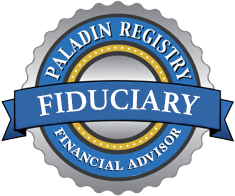Cash-value life insurance: The myth of permanent insurance
- by Glenn Wessel, CFA, CPA, CFP®
A number of dubious marketing claims swirl around cash value life insurance (CVLI) which includes most any type of life insurance that doubles as an investment. One particularly specious claim is that CVLI is somehow permanent in nature versus term insurance which is temporary. This claim is insidious on a couple of counts.
First, it implies that people somehow have a lifelong need for life insurance. Some may. Many do not. To be sure, the purpose of life insurance is to create an artificial estate of sufficient size to ensure one can discharge one’s liabilities – raising children, making mortgage payments, etc., in the event of one’s early demise. However, if one already has the wherewithal to pay for these things, one might not need any life insurance whatsoever. In essence, life insurance is designed to replace one’s earning power should one somehow be cheated out of a lifetime of work.
To afford retirement, what one really needs is some accumulated wealth, not an artificial estate created by life insurance. So, the notion that life insurance somehow ought to be permanent is circumspect at its very root.
Second, most CVLI products are, in fact, temporary forms of insurance and not permanent as claimed. How so? Because the premiums associated with CVLI tend to be so much higher than for term insurance, a portion of these excess premiums can therefore accumulate within the policy itself as policyholder savings. As they accumulate, the insurance component of the policy generally declines commensurately – sometimes vanishing altogether. Where’s the permanence in that? Through CVLI’s excess premiums, one eventually becomes self-insured.
The issue then centers on whether CVLI is an efficient way to create wealth. In my opinion, it’s not. More later…
Glenn Wessel has an investment counsel and financial planning practice in downtown Asheville. He has been admitted to the Paladin Registry as an elite financial advisor.



